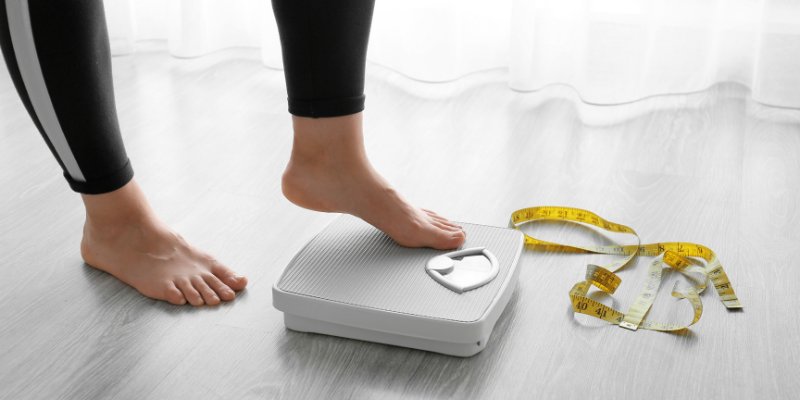The human menstrual cycle, influenced by genetic and external factors, sometimes experiences irregularities. Occasionally, women seek methods to induce their periods for various reasons. Here, we explore several strategies based on science and tradition.
The menstrual cycle forms a fundamental aspect of female reproductive health. Its rhythm and regularity are indicators of overall well-being, but to make informed decisions about influencing its onset, knowledge of its intricacies is essential.
Phases Of The Cycle
There are four primary phases to consider:
- Menstrual Phase: This is when bleeding occurs, marking the start of the cycle.
- Follicular Phase: During this time, the ovaries prepare an egg for release. The period tracker apps often highlight this phase as the most significant in fertility prediction.
- Ovulatory Phase: This is when an ovary releases a mature egg. It's crucial for those using period tracker apps to recognize this stage for family planning or natural contraceptive purposes.
- Luteal Phase: Post ovulation, this phase witnesses hormonal changes preparing the body for potential pregnancy.
Period Symptoms and Their Significance
Before menstruation begins, various period symptoms act as tell-tale signs. These might include abdominal cramps, bloating, mood swings, and a notable change in energy levels. Many women also report experiencing specific types of discharge before their period, indicating impending menstruation. Recognizing these period symptoms is essential as they provide cues to the body's internal processes.
Natural Approaches to Inducing Periods

Nature offers numerous solutions when it comes to influencing the menstrual cycle. Some have been used for centuries and have found their way into modern practices.
Exercise modifications
Physical activity is closely associated with menstrual health. While excessive exercise can lead to disruptions, a balanced regimen can help harmonize the cycle. Period tracker apps often incorporate reminders or suggestions to encourage optimal physical activity levels during different phases.
Dietary considerations
Nutrition plays a central role in menstrual health. Though not scientifically verified, foods like ginger, turmeric, and fresh pineapple have been traditionally linked to influencing menstrual onset. Additionally, maintaining hydration levels can play a role, as dehydration might lead to delays.
Managing stress
High-stress levels can significantly impact the menstrual cycle. Techniques such as meditation, yoga, and regular relaxation breaks can help keep stress in check. Period symptoms like mood swings can be exacerbated by stress, making its management even more critical.
Herbal Remedies

Herbal solutions have been sought for centuries. While not all have been scientifically validated, they remain popular choices for many.
Black Cohosh
Traditionally used for menopausal discomfort, some believe its impact on estrogen might influence the menstrual cycle. However, its efficacy remains a topic of debate.
Dong Quai
Often termed "female ginseng," Dong Quai is believed to stimulate the uterus and boost pelvic blood circulation. While some users have reported noticeable changes after consumption, scientific backing is limited.
Parsley Tea
Parsley contains apiol and myristicin, which can influence estrogen and uterine contractions. Drinking parsley tea has traditionally been suggested to induce periods. Observing the discharge before period onset can indicate whether such herbal interventions have an effect.
Medical Interventions
When natural and herbal therapies fail to induce periods, medical science offers a variety of methods that may help. However, knowing what to expect and talking about choices with medical specialists is essential.
Hormonal Birth Control
Hormonal birth control pills are a common way to regulate menstrual cycles. Adjusting hormone levels can be used to schedule or even skip periods. Period tracker apps often come with features that allow users to set reminders for taking their pill daily, ensuring its effectiveness remains consistent.
Progesterone
Progesterone therapy involves synthetic progesterone to mimic the body's natural hormone levels. After discontinuation, a withdrawal bleed usually occurs, mimicking menstruation. Polycystic Ovary Syndrome (PCOS) sufferers with irregular cycles or missed periods benefit from this intervention.
Nonsteroidal Anti-inflammatory Drugs (NSAIDs)
NSAIDs like ibuprofen may induce periods in some people. They reduce the production of prostaglandins, chemicals in the body associated with period symptoms like cramps and pain. However, it's essential to remember that NSAIDs are not universally effective for this purpose, and their frequent use might have side effects.
Lifestyle Factors
The relationship between lifestyle choices and menstrual health should be noticed. Several factors can either disrupt or promote regularity in menstrual cycles.
Weight Management
Being underweight or overweight can lead to irregular periods or amenorrhea (absence of menstruation). Maintaining a healthy weight is crucial for hormonal balance. Many women utilize period tracker apps to monitor their cycle alongside dietary and exercise regimes, ensuring they address health and menstrual regularity.
Avoiding Endocrine Disruptors
Chemicals known as endocrine disruptors, found in some plastics and cosmetics, can interfere with the body's hormone systems. Limiting exposure to these can help in maintaining a regular cycle. Being observant about discharge before period can provide insights into any hormonal disturbances due to these disruptors.
Maintaining a Consistent Schedule
Regular sleeping patterns and avoiding extreme shifts in daily routines can support hormonal balance. Erratic schedules can often aggravate period symptoms, so maintaining a consistent routine can have benefits beyond just menstrual health.
Importance of Tracking and Observation
As with many aspects of health, observation and tracking are vital when understanding one's menstrual cycle.
Using Period Tracker Apps
Period tracker apps allow women to record and monitor their menstrual cycles. By entering data about menstrual flow period symptoms and noting any unusual discharge before period, users can often predict their next cycle with surprising accuracy.
Recognizing Physical Signs
Discharge before period, abdominal cramping, and even mood fluctuations can indicate an impending menstrual cycle. Recognizing these physical signs and understanding their patterns can help women anticipate and prepare for their periods.
Regular Medical Check-ups
While self-monitoring using period tracker apps and recognizing period symptoms is crucial, regular medical check-ups ensure that any anomalies or irregularities get addressed promptly and appropriately.
Conclusion
The factors influencing menstrual regularity, from medical interventions to daily habits, underscores the complex nature of women's health. With tools like period tracker apps, women are now better equipped than ever to monitor and manage their cycles, but these digital aids should be complemented with consistent medical guidance.
Observing period symptoms and changes, such as discharge before the period, helps in the early detection of potential irregularities. As women navigate the myriad options available to induce or regulate their periods, informed decisions backed by professional advice remain paramount.




